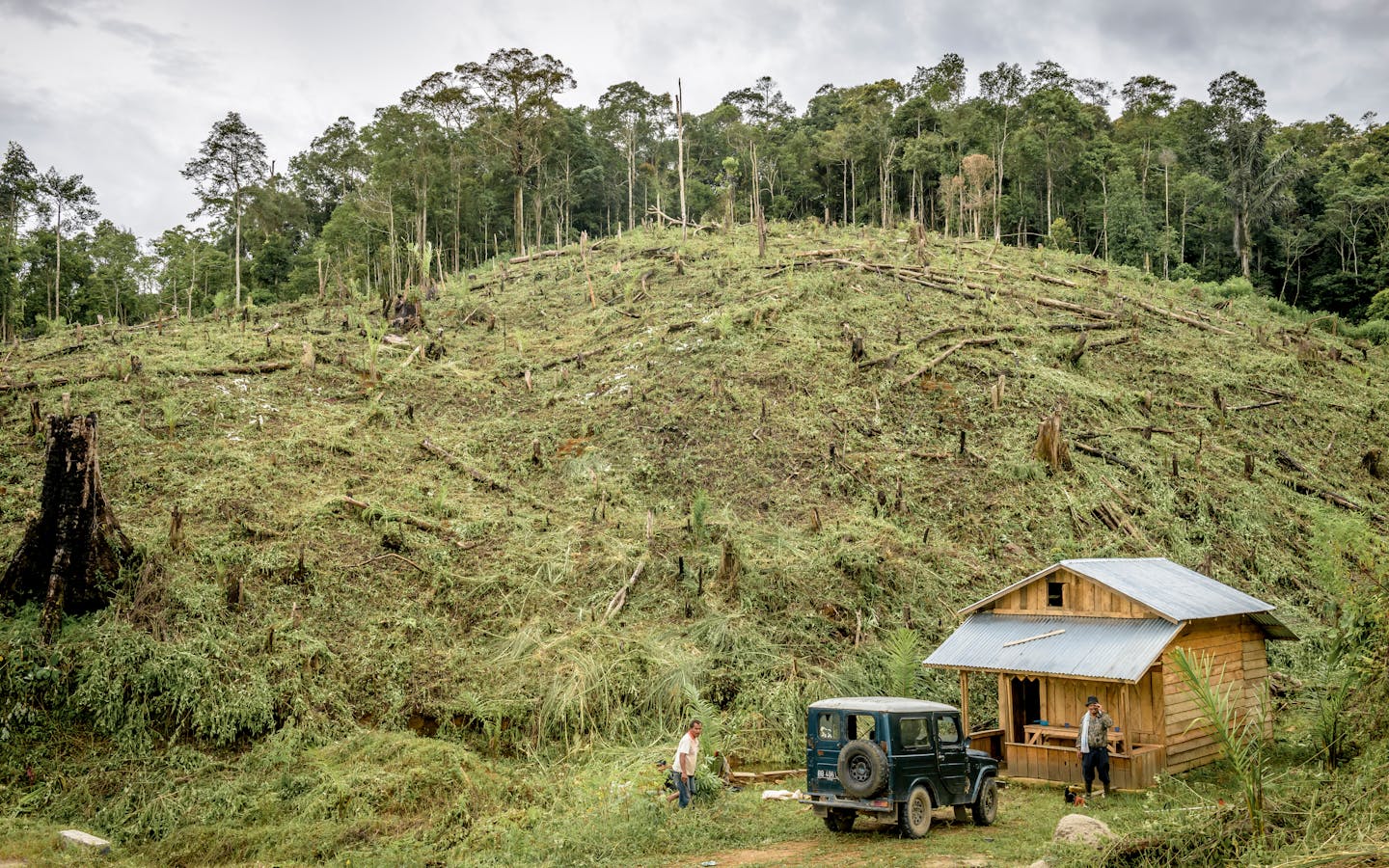We’ve long known that human health and environmental health are inextricably linked. Now, science is increasingly showing us that the destruction of nature has a direct role in outbreaks of disease.
Protect nature, prevent pandemic

Most newly emerging infectious diseases originate from animals. Changes in the way land is used — particularly deforestation — play a major role in transmitting them to people, research shows. As the global commercial wildlife trade persists and humans continue to encroach deeper into forests, there are more opportunities for pathogens to spread from animals to humans — a process known as “zoonotic spillover.”
Protecting nature is critical to preventing future pandemics. Ecosystems function similarly to the human body: When they are healthy, they are more resistant to disease. But when forests and other natural ecosystems are destroyed or degraded for agriculture, cattle ranching, urban development and other activities, sick and stressed wildlife are forced into closer contact with farmed animals and people. This creates the conditions for diseases to spread quickly.
Moreover, experts expect climate change to exacerbate the emergence of infectious diseases, as warming weather shifts the distribution of animals that can spread infectious diseases.
Investing in nature yields significant returns
A pandemic such as COVID-19 costs millions of lives and trillions of dollars. For just a fraction of that amount — approximately US$20 billion per year — the world could significantly reduce the emergence of new infectious diseases and save countless lives, according to a study co-authored by Conservation International scientists.
Funding would support four pandemic prevention strategies:
Despite studies revealing that many pandemics are fueled by the destruction of nature — including seminal research by Conservation International — sufficient action has not been taken to mitigate future pandemics by protecting high-risk ecosystems. From working with governments to reduce deforestation and strengthen their biodiversity conservation laws, to supporting Indigenous peoples and local communities in their efforts to manage their territories, Conservation International is helping to prevent pandemics by addressing some of the key drivers that cause the emergence of infectious diseases.
How can we prevent future pandemics? It starts with stopping the destruction of forests and the illegal wildlife trade. Protecting nature is key for a healthy future.
News and science
Protecting nature to prevent pandemics costs just 1% of fighting them
Experts say the yearly cost of future pandemics will be a staggering US$ 2 trillion. For just 1 percent of that cost, the world could prevent pandemics at their source by protecting nature, according to a new study co-authored by Conservation International scientists. Read more »
Protect nature or risk future pandemics, expert warns
Humanity’s assault on the environment could unleash another pandemic. So says Conservation International’s pandemic prevention fellow, who explores the links between human health and the health of the planet. Read more »
3 ways to prevent the next pandemic with nature, according to science
Conservation International scientists describe a three-pronged strategy to decrease the risk of future pandemics: reduce deforestation, restrict the global wildlife trade and monitor the emergence of new viruses before they spread. Read more »
Poaching, deforestation reportedly on the rise since COVID-19 lockdowns
Poaching and deforestation in the tropics increased after COVID-19 restrictions went into effect around the world, according to reports from Conservation International field offices. Read more »
Conservationist: Protecting nature an ‘investment’ in our health
In recent decades, wildlife populations have faced catastrophic decline. Over that same period, diseases that spread from animals to humans have rapidly multiplied. This is no coincidence, says one prominent conservationist. Read more »
For Indigenous peoples, pandemic poses unique risks
Excluded from most national COVID-19 response measures, many Indigenous groups worldwide face “particularly challenging times,” according to Minnie Degawan, director of Conservation International’s Indigenous and Traditional People Program. Read more »
What does COVID-19 have to do with nature? These 5 articles explain
Protecting nature is critical to preventing future pandemics. With that in mind, here are five articles that explore the connection between nature and human health. Read more »
Expert: To prevent pandemics like COVID-19, 'take care of nature'
Conservation International’s senior climate change scientist describes how humanity's relationship with nature impacts pandemics. Read more »












